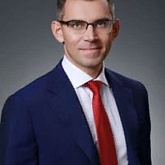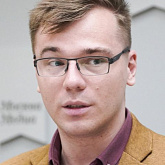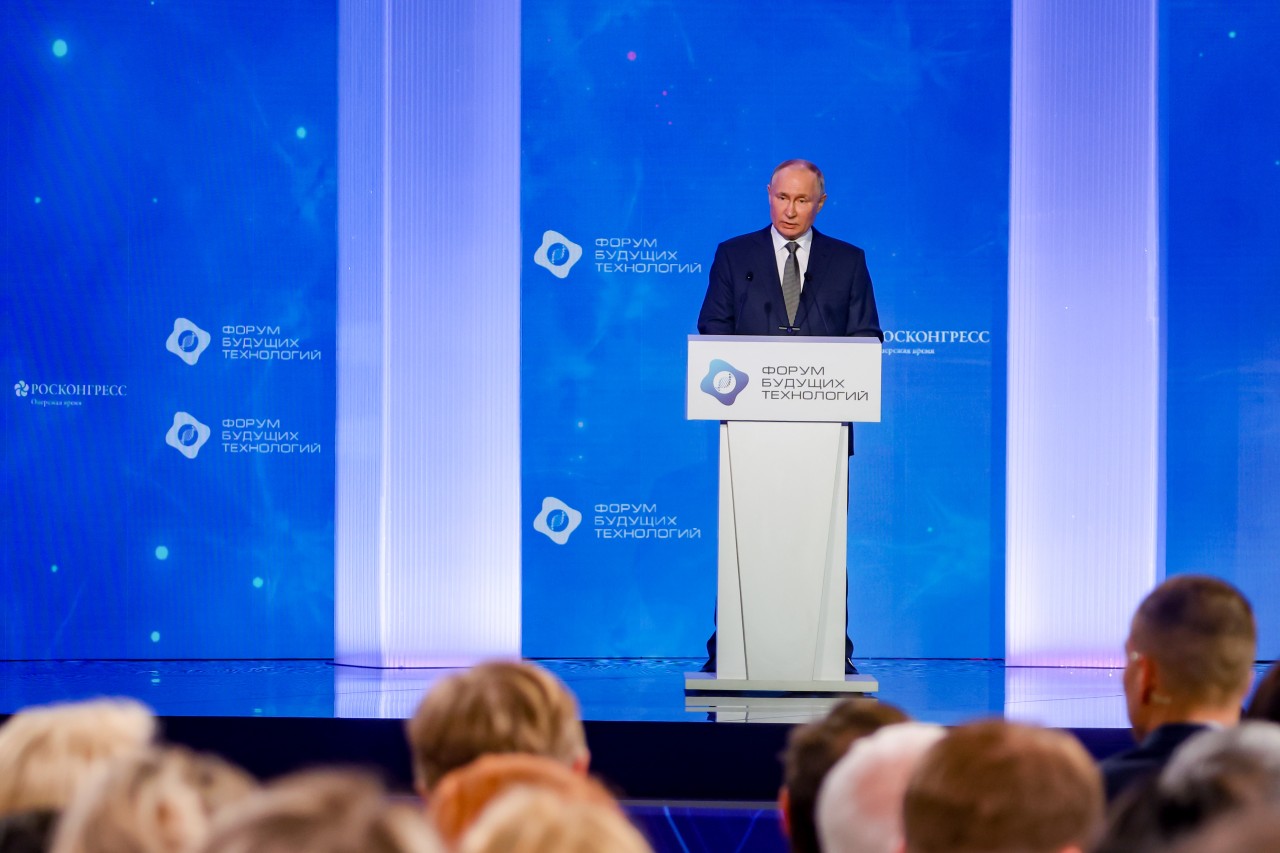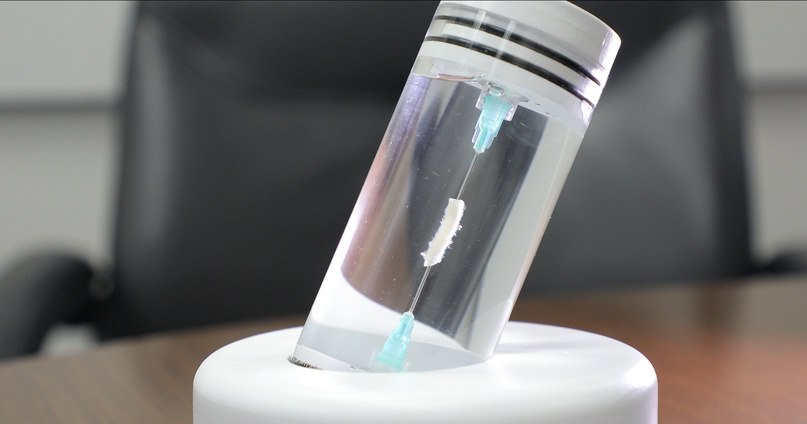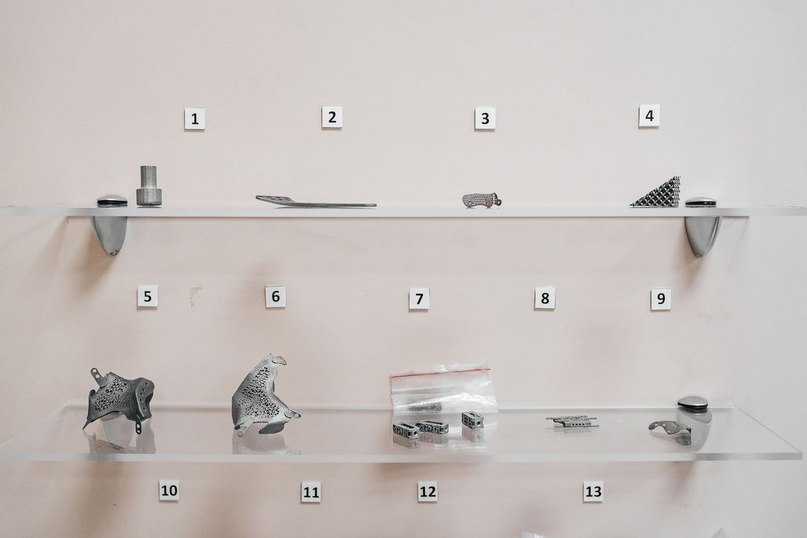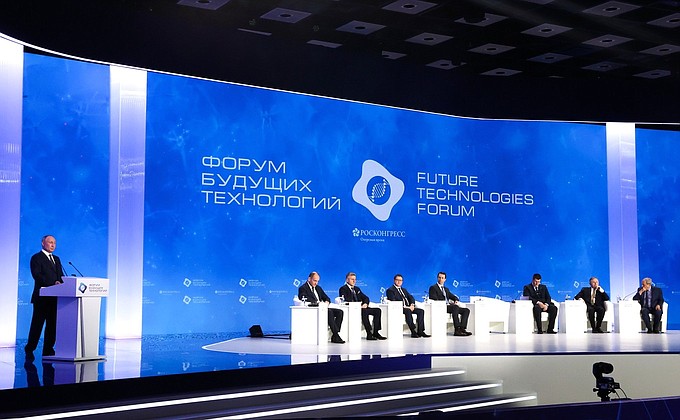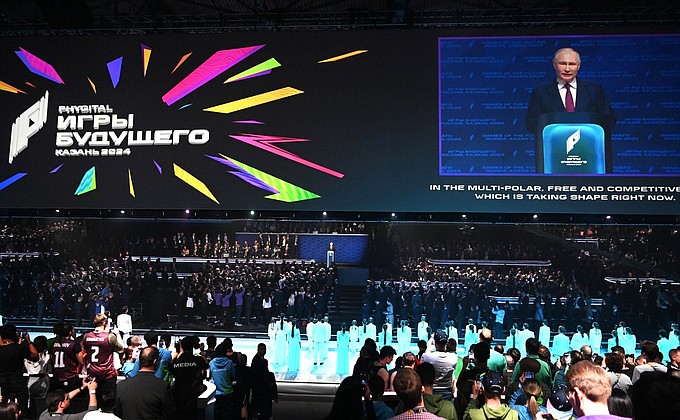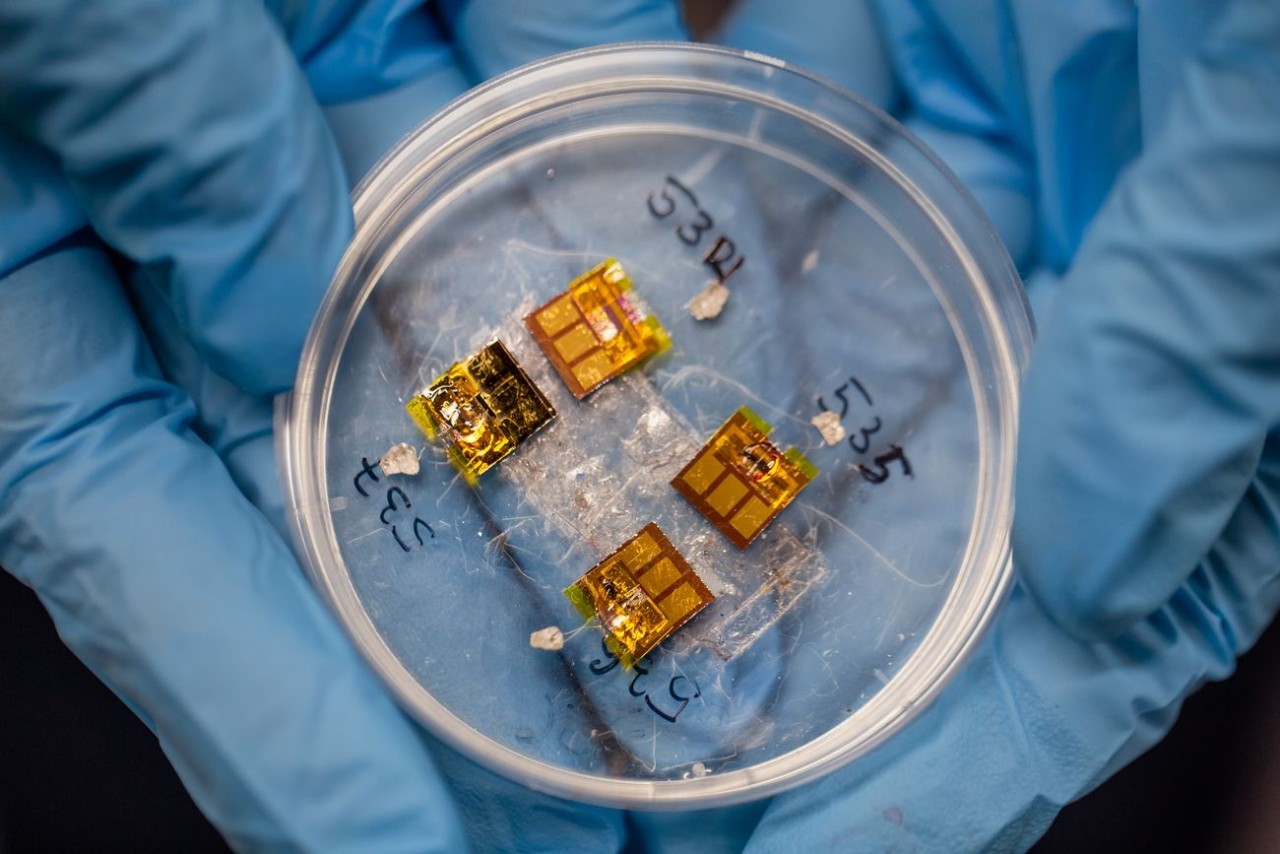Hint: endless viruses from space and amazing cyborgs "that will soon acquire a positive connotation"
Владимир Путин принял участие в пленарном заседании Второго форума будущих технологий «Современные медицинские технологии. Вызовы завтрашнего дня – опережая время».

kremlin.ru
"...
Vladimir Putin: The answer is very vague.
We need to improve these test systems.
..
Grigory Trubnikov: I am sure that the medical community will do its best after the head of state's call. Of course.
If I may, we will move on.
Vasily Gennadievich rightly said that the coronavirus infection has pushed the development of genetic technologies in the country as a whole, and not only in the field of biosafety. We do have real achievements in this area. Mr President, you have mentioned this, and you regularly say that the federal programme for the development of genetic technologies is showing very striking results.
Alexander Aleksandrovich Makarov actually coordinates the development of genetic technologies in medicine within the framework of this well-known federal program. Alexander Aleksandrovich, please share your successes.
Alexander Makarov: Thank you.
..
The next development I want to talk about concerns oncolytic viruses. During the pandemic, we were all very afraid of the word "virus": we believed that the virus was something bad and had to be fought. But oncolytic viruses are not pathogenic – they act directly only on cancer cells, and they act in a targeted way, and this action destroys cancer cells.
Since all tumors are different, they depend on the type of disease, on the person, and even within the tumor, the cells are also diverse, so we need to create a panel of these viruses, which is what we did. More than 30 viruses have been created, and in cases where one or two viruses need to be used, a cocktail of them can be used.
Now, as far as I understand, we don't have much time, I will just say a few words about the pre-clinic, which takes place in two places: at Biocad and at the Radiology Centre. The results are very good: some viruses were submitted to Biocad, and others to the Radiology Center. Tumors disappear, Biocad had breast cancer – the tumor disappears completely, and for the Radiology Center, they studied glioblastoma, that is, it is a brain tumor that practically means a very bad diagnosis for the patient. Here, the tumor shrank by four to five times, that is, the experience of using oncolytic viruses is very positive. Now the Radiology Center is preparing patients with solid brain tumors, who will be treated with these viruses.
..
We came up with a slightly different approach, which is to try to find out what defense mechanisms bacteria have for them to respond to antibiotics. And we found out that the main protective system is the production of hydrogen sulfide. Enzymes that are responsible for activating this system have been selected, substances have been selected, synthesized that can stop the action of these enzymes, and together with these substances, if antibiotics are used, there is no resistance. Bacteria perceive the effect of antibiotics – the old ones that exist, that is, there is no need to develop anything new.
I would probably like to end here. There's a lot to tell, but unfortunately, time is limited, as always. I want to say that genetic technologies have already penetrated our lives, and it is impossible to even imagine what will happen next, because the development is very fast and exponential. And it's good that it's happening, because almost everything now depends on genetics – in medicine and in other places, in agriculture, in the microbiological industry, everything is based on genetics.
Thank you for your attention.
Vladimir Putin: Who is your genetic partner? Rosneft?
Alexander Makarov: No, Biocad. Rosneft itself does not yet make medicines, but Biocad does.
Vladimir Putin: It makes money. Everything is from there. (Laughter.)
Alexander Makarov: I understand that by praising Biocad, I maybe...
Vladimir Putin: Where did the viruses come from, did they come from outer space?
Alexander Makarov: Yes, and there are some in space as well. In space, there are colossal problems with the ISS, because it is full of microorganisms, because where there are humans, there are microorganisms, and these microorganisms destroy the structural elements of the station, cause allergies among cosmonauts, in general, a huge problem. We are now also studying these microorganisms that were delivered to us from the ISS, and we find out that they are becoming even more antibiotic-resistant there, although there is a radiation background a hundred times greater than on Earth, but nevertheless, this does not affect them at all – they only become even stronger. Now we are finding out what the reasons for this process are and how we can deal with it, because this is a real problem.
Vladimir Putin: We can talk endlessly, just as space is infinite.
Thank you.
Grigory Trubnikov: Thank you, Aleksander Aleksandrovich.
Indeed, listening to you, you understand that a person strives for more and wants as many opportunities as possible in a short time.
We believe that neurotechnology should help us in such conditions. It is not for nothing that we say that the potential of our brain is still very, very unknown to us, and at the same time, of course, we want to learn as much as possible about ourselves. In general, it is extremely interesting to find out what is hidden in us. For me, as a person who is engaged in the study of the fundamental properties of matter, the study of the brain is like opening up new horizons in the universe.
The Center for Brain and Neurotechnologies of the FMBA of Russia has been operating in Russia for several years. It was opened several years ago, you visited it last year, Mr President, and now it is one of the world's leading centres.
I would like to ask Vsevolod Vadimovich, who heads this centre, to tell us how quickly these horizons open up to you and what people can expect from your research.
Vsevolod Belousov: Thank you.
Dear Vladimir Vladimirovich, Dear colleagues and guests!
Slowly, of course, the mysteries of the brain are being revealed, but nevertheless we are working on it.
What is neurotechnology in general and what do we associate it with? Everyone probably knows the word "cyborg" – it is a cybernetic organism. It's usually found in science fiction and has a negative connotation: we imagine a robot that is controlled by a human brain, or a person who is controlled by some kind of code. But is it true?
In fact, neurotechnology is already helping us treat diseases that were previously thought to be incurable. And being a cyborg really means regaining lost functions. I'll give you three examples.
The first is a stroke. When a blockage of a vessel or vessels kills an area of the brain responsible for some function. And during my report, there will be from 50 to 100 new cases of stroke in the world.
Let's say a person has stopped moving their arm as a result of a stroke. It is necessary to understand that in this case the hand is healthy – the brain is sick. And neurotechnologies make it possible to retrain neighboring areas of the brain with the area of damage, and they will take over the lost function, they will learn, accordingly, to control the hand, and the patient will return to normal life.
What technologies help us with this? Virtual augmented reality technologies, biofeedback technologies, transcranial magnetic stimulation, brain-computer interface, and much, much more. As a result, the brain will learn to control this hand again. It's about the same as learning a foreign language: at first you don't understand a word, but at some point you are already fluent.
And the technologies I mentioned are not only available in large federal medical research and clinical centres, but are now being actively replicated in regional clinics across the country.
The second example is from the field of neurodegenerative diseases. It's the same arm, but it's not immobilized like in a stroke – it's in a state of tremor in a patient with Parkinson's disease. He can't drink, eat, or write on his own. He is forced to take strong drugs, but they do not always help. And in this case, a technology that came to medicine from physics and materials science comes to the rescue – focused ultrasound.
A patient with tremor undergoes surgery with focused ultrasound, without incisions and anesthesia. During the operation, a small area of the brain responsible for the generation of tremor is switched off precisely and precisely, and the patient returns to normal life during the operation. Currently, two clinical centers in Russia are proficient in this technique and treat patients, and in 2024 and 2025, several more clinics will join the treatment process with this technique.
The third example is when an arm is lost as a result of amputation or trauma, here we are talking about neuroprosthetics. Traditional prostheses used to perform a cosmetic function mainly, but thanks to the efforts of domestic developers, bionic prostheses were developed, which today were presented, including at the exhibition, which can already move.
They can perform operations to grab, carry, and hold items. They are controlled by electrodes that are attached above the level of the prosthetics. But that's still a long way from our real hand. Our hand is controlled by signals from the nervous system, and we always have feedback from sensory neurons that allow us to fine-tune our movements.
We have set ourselves an ambitious goal – to make bionic prostheses with feedback and integrate them directly with the nervous system, so that the patient will feel this prosthesis literally as a part of his body and use it just as freely. To do this, we combine the resources of several leading scientific clinical centers and high-tech companies, so that soon the word "cyborg" acquires a positive connotation.
Unfortunately, in my short report, I cannot talk about all the neurotechnologies – I can't tell you, I don't have time – about synthetic and cellular neurotechnologies, about bioprinting, about gene therapy drugs, about neurostimulation, and so on. But you can already see that neurotechnology has enormous potential to improve people's lives. All that is needed is a well-coordinated interaction and a balance between the technological capabilities of neurotechnologies and the timely resolution of emerging ethical issues.
We are confident that a truly well-developed state strategy to support neurotechnologies will bring together, on the one hand, scientists from various disciplines, and on the other hand, high-tech companies to solve applied medical problems.
Thank you for your attention.
Vladimir Putin: You said that a person cannot drink with trembling hands. But a Russian person can. (Laughter.)
Vsevolod Belousov: That's right.
Vladimir Putin: People's Artist Lebedev showed this very well at the Leningrad Bolshoi Drama Theatre. He pulled it up through the towel with his other hand. Well, it's all a joke.
And not a joke – this is what you say: you can teach the brain to control the hand again. But in strokes, the part of the brain that controls the hand is affected. So how can you teach the affected part of the brain?
Vsevolod Belousov: The fact of the matter is that this area of the brain has been damaged, and sometimes it has been irretrievably lost. But after a stroke, the so-called plasticity window opens, when it is the areas of the brain around this tissue, the neighboring ones, that can be trained to control the hand. It is no coincidence that I mentioned the language.
Vladimir Putin: Is it possible to teach neurons to "run" nearby?
Vsevolod Belousov: Yes, it's just a kind of workaround. That is, we do a workaround for the same function.
Vladimir Putin: Curious. And, of course, it's fantastic that the feedback is that a person begins to feel a bionic prosthesis. It's just incredible, I can't even believe it.
Vsevolod Belousov: It will be done.
Vladimir Putin: Jokes aside, the Government and Tatyana Alexeevna should not reduce social support for people who receive such prostheses, citing the fact that it is like a real hand.
That's right, it's not a joke. The relevant postulates of the Ministry of Health stipulate that this should be done. I hope that all this has already been withdrawn? Confiscated, thank God. Let's give a round of applause.
Grigory Trubnikov: Thank you for a very lively discussion. You see, we are already talking about the decisions that have been made and what has been done.
Indeed, it all looks fantastic – what Vsevolod Vadimovich told us, and our unique Brain and Neurotechnology Centre...
Vladimir Putin: Unbelievable.
Grigory Trubnikov: Yes, absolutely. What our colleagues are doing is helping to fight, I would say, physiology – the treatment of diseases of the brain and nervous system. These studies are also about pre-clinic.
..."
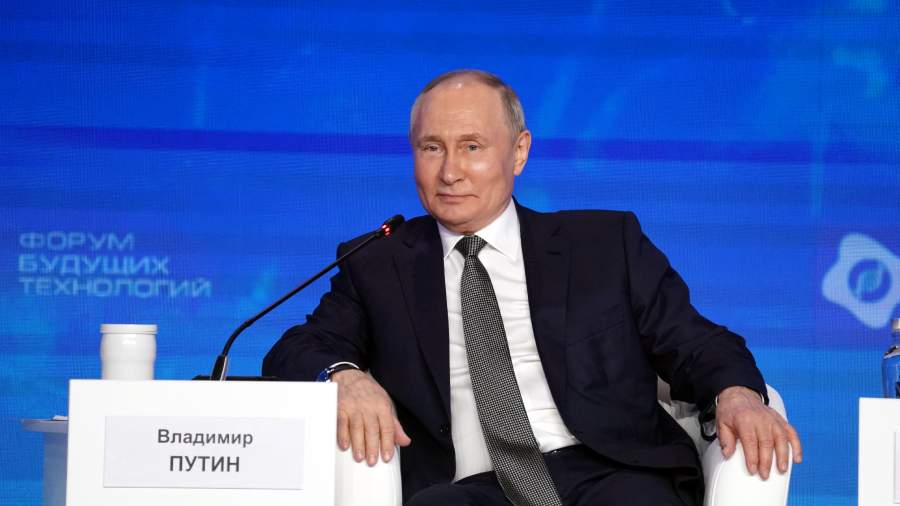
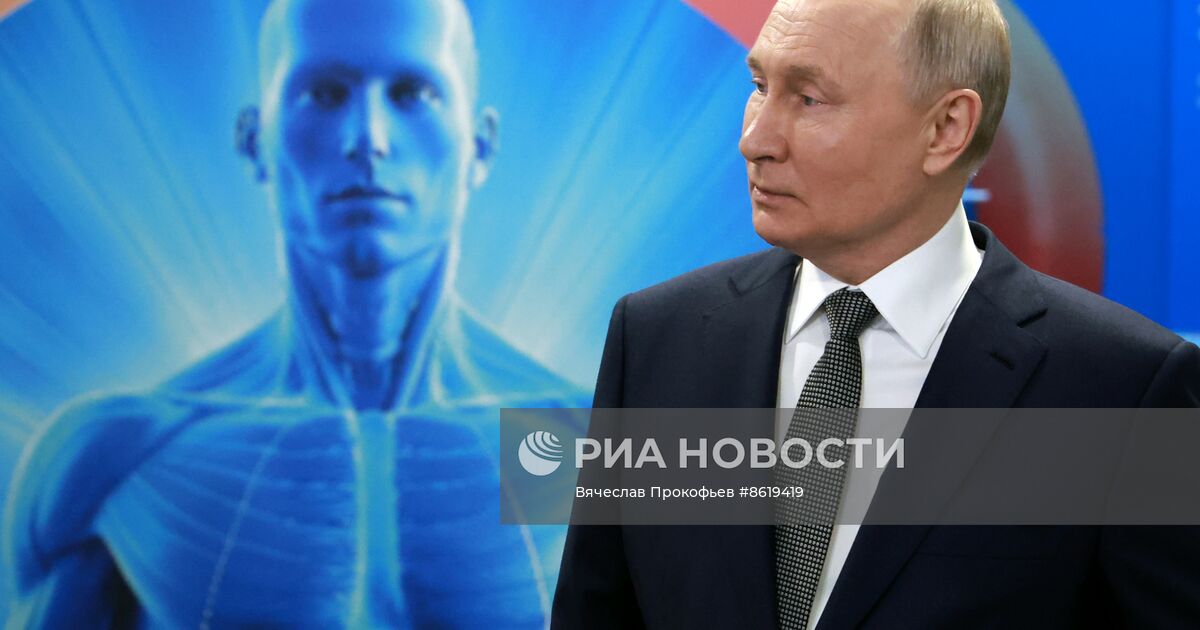
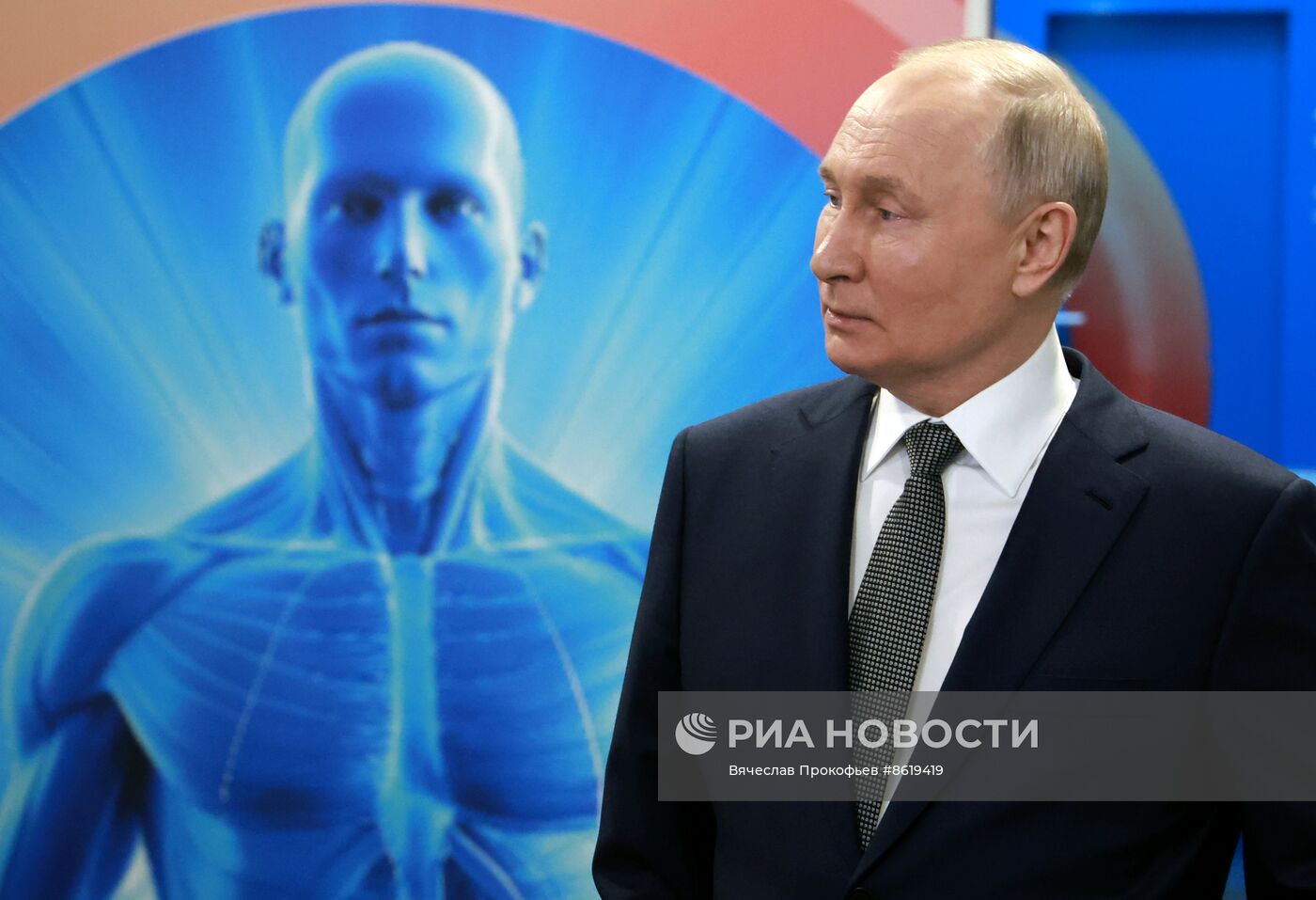
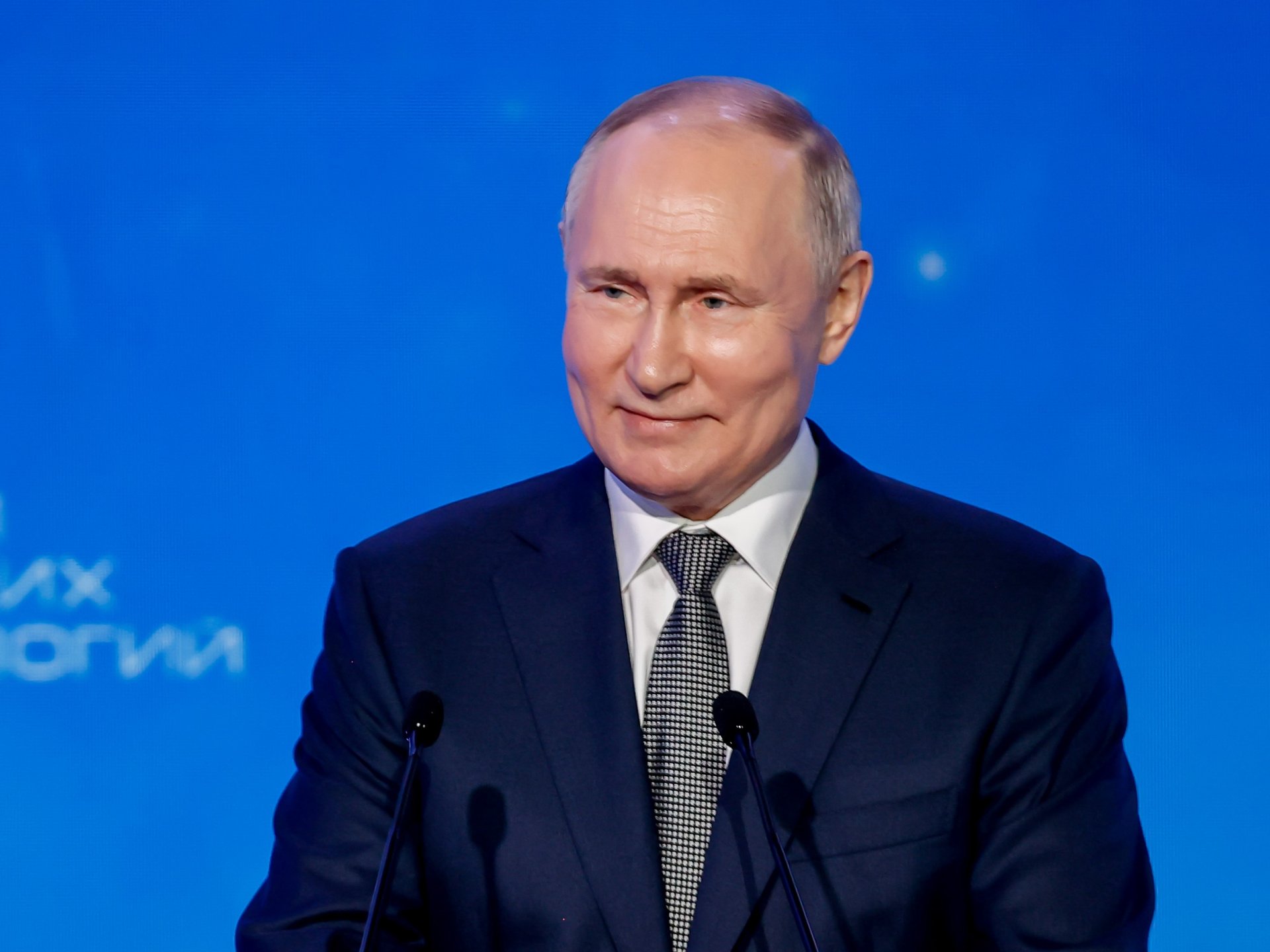








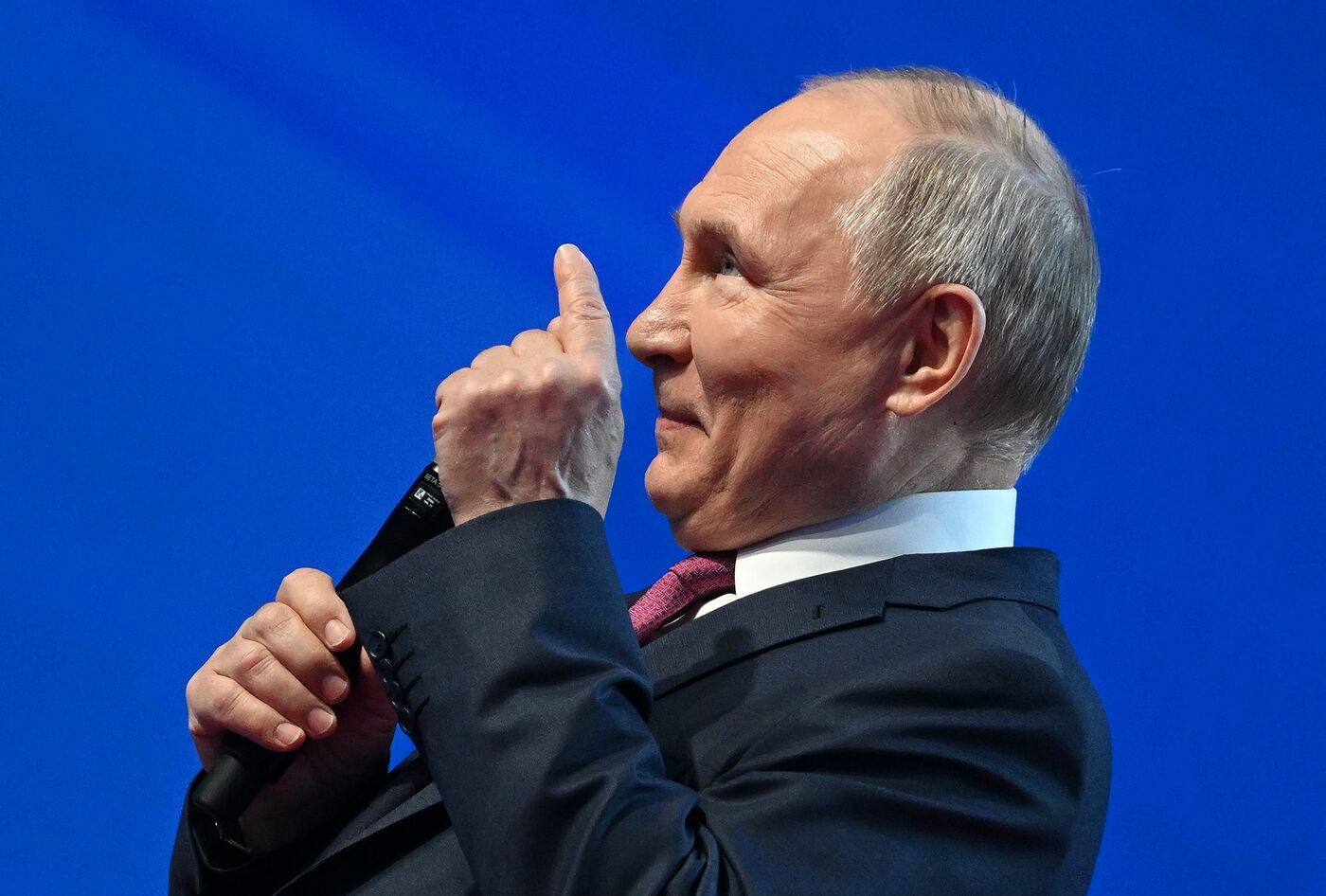

vigilantcitizenforums.com

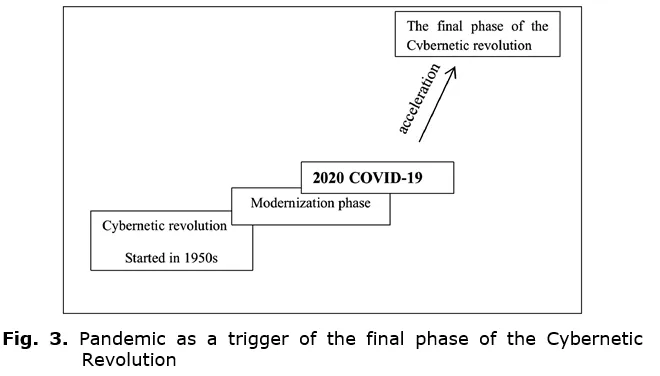
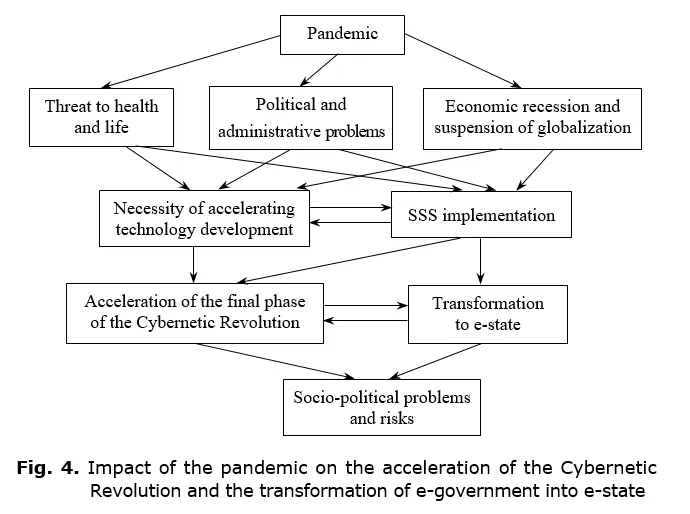

vigilantcitizenforums.com
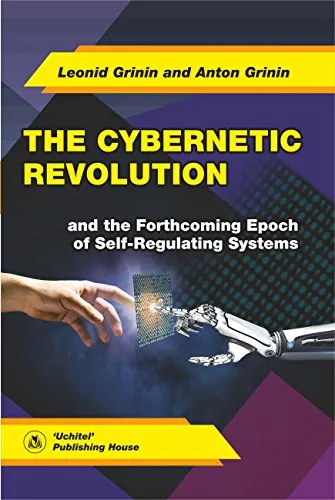
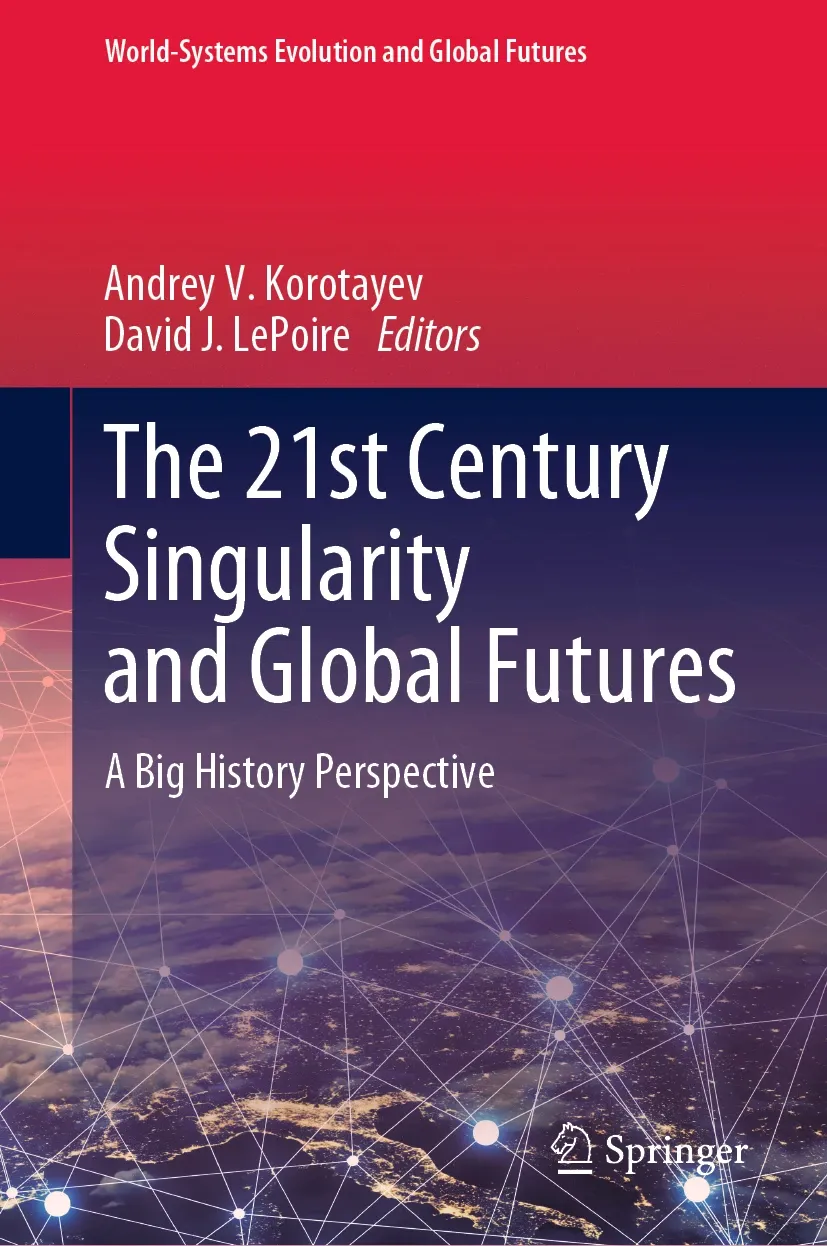

vigilantcitizenforums.com

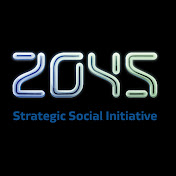
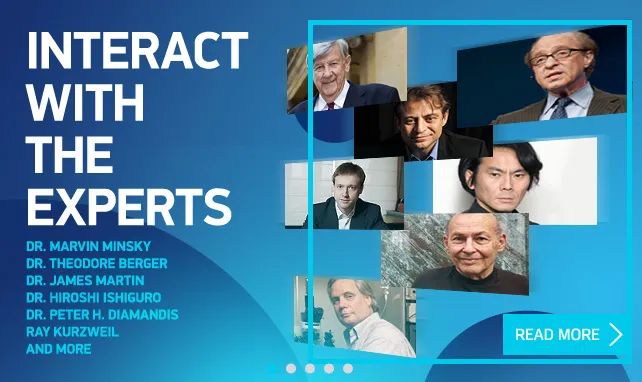

vigilantcitizenforums.com
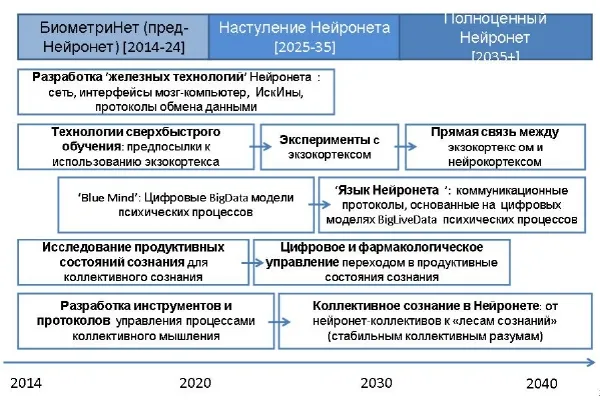
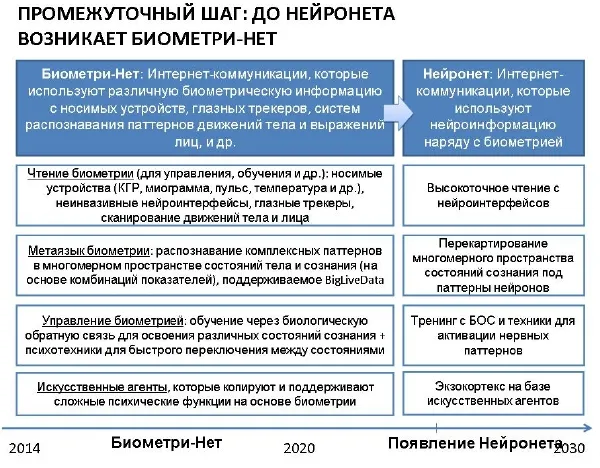

vigilantcitizenforums.com
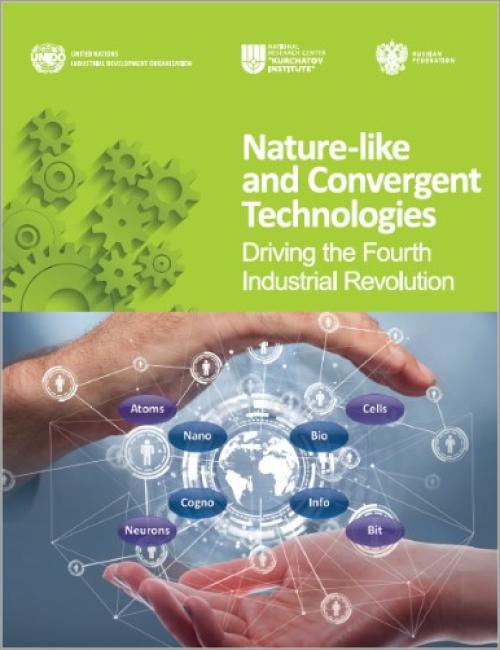

vigilantcitizenforums.com




